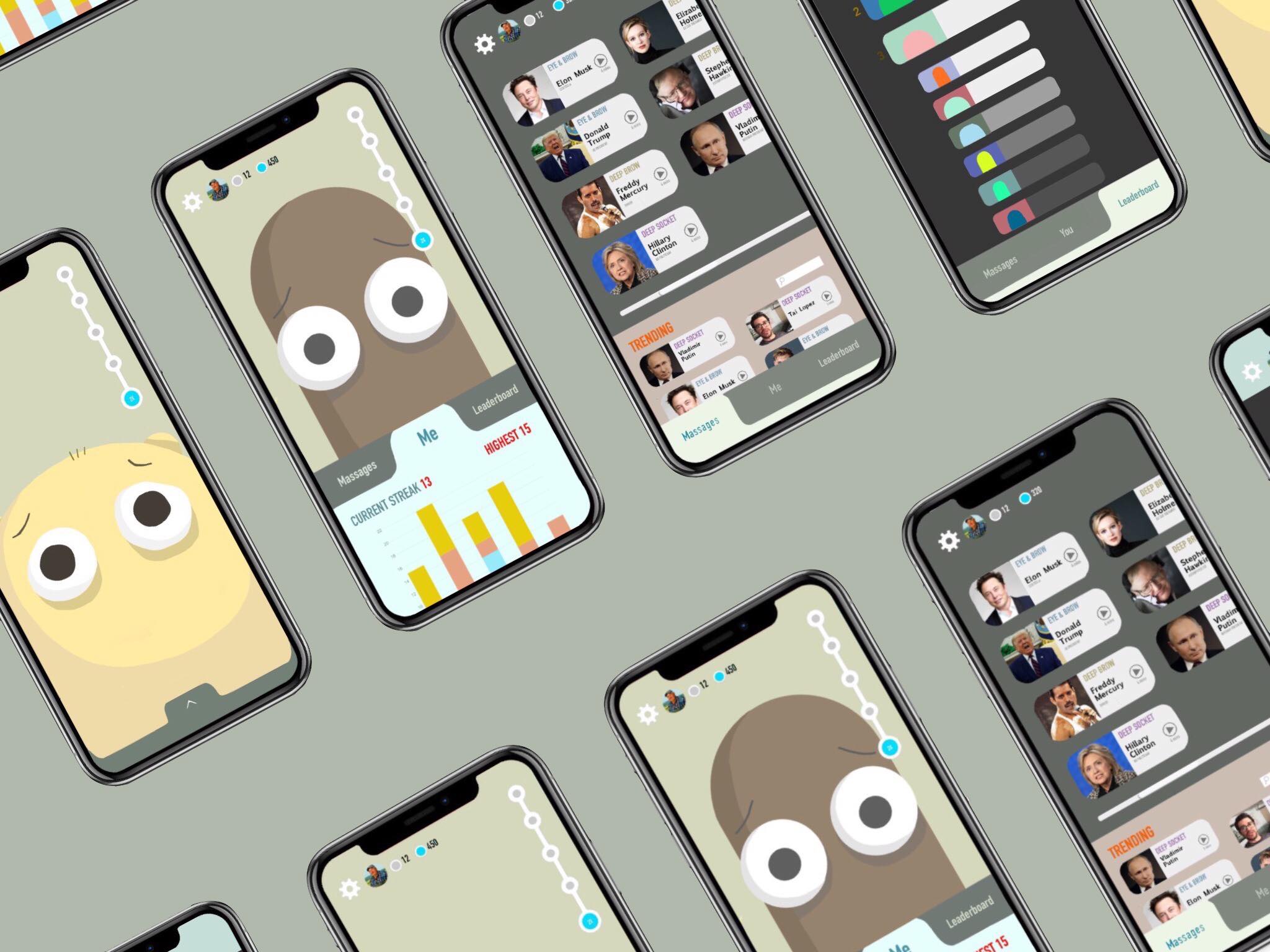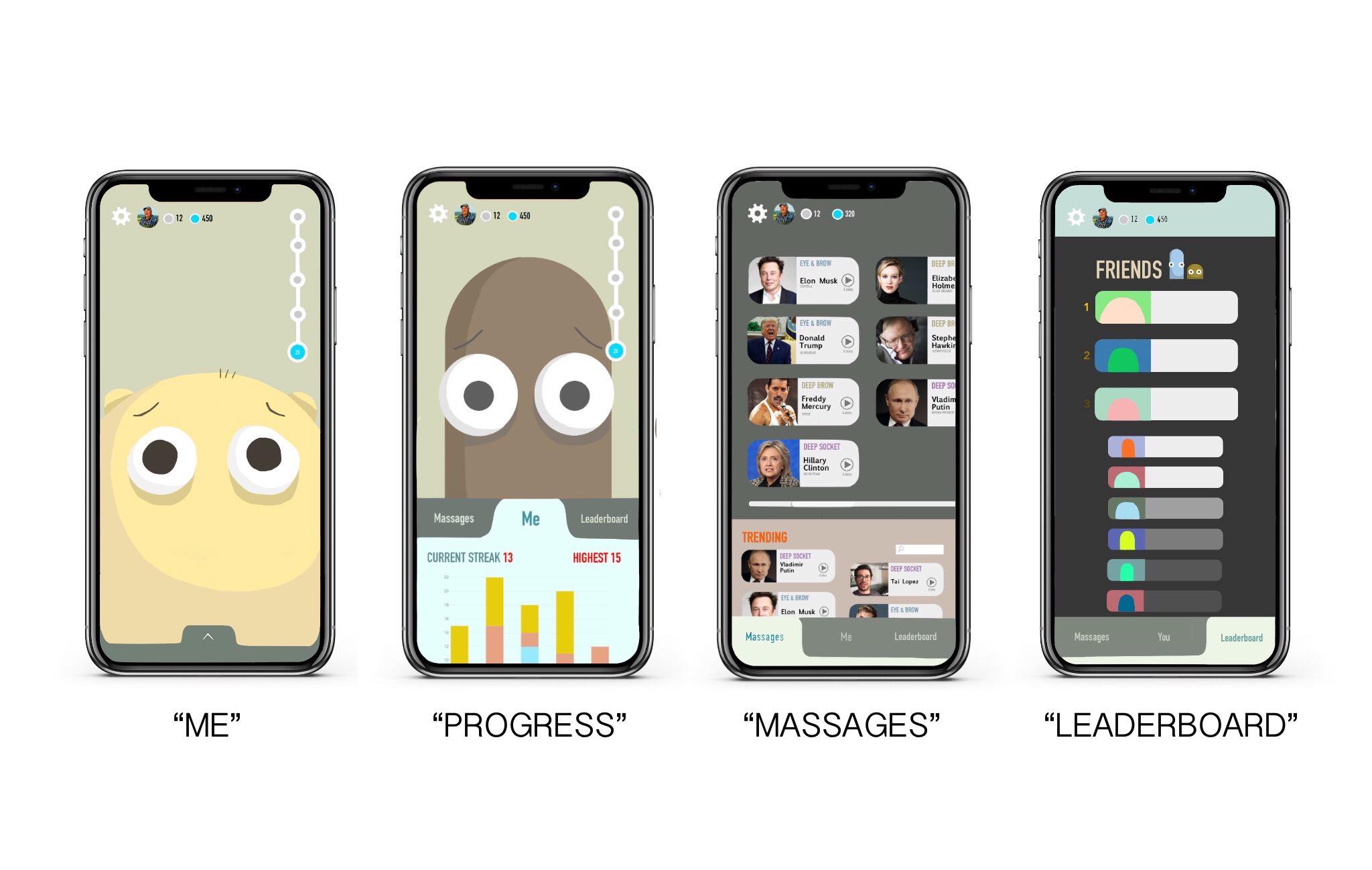
YAN | Relaxing eyes after extended screen time with massages, exercises voiced by celebrities
Project Team:
Jessica Chung , Alice Lu , Celia Wang , Haiyue Ma
Status:
New Idea
School/Organisation:
Methodist Ladies' College, Kew
Social Purpose
Good Health & Wellbeing
What is the problem you found?
In the wake of strict social distancing measures, there are currently approximately 3 billion people in lockdown around the world. In Australia, with more than 90% of us having a smartphone, our digital devices are now more essential to daily life than ever.
As we fulfil our civic duty by staying at home, we are also witnessing an unprecedented surge in online activity; and naturally accompanying it, an immense increase in the number of hours of daily screen time. As found by Australia’s National Broadband Network (NBN), there has been a rise of up to 80% in comparison to daytime usage in February.
Especially in virtual workplaces, schools and universities, many Australians have little choice but to replace their usual activities with online alternatives - in particular, students, of whom almost 90% of the population are cut off from physical school. In March, Zoom knocked Facebook and Netflix down the Apple and Google mobile app store rankings in the US, as people sought video chat options.
Of course, this is occurring everywhere in the world. Demand for streaming sites across the globe has intensified, with Amazon and Netflix having to reduce video quality in some countries to handle the strain.
Naturally, a multitude of negative physiological and psychological impacts arise from excessive screen time.
According to a 2014 Nielsen report, staring into a screen for extended periods of time has an adverse effect on eye health, causing strained and dry eyes, as well as blurred vision and headaches. Short-sightedness is another common consequence of extended screen time. The UN estimates that more than 50% of the world’s population will have myopia by 2050 - by contrast, in 2010, an estimated 27% of the global population was short-sighted, due to the recent rise in usage of technology.
For students, this is an especially dire phenomena, not just in terms of vision, but in regards to sleep. A 2015 study of 10,000 16-19-year-old students in Norway reported that those who had 4+ hours of screen time a day (outside of schoolwork and homework) experienced a 50% higher likelihood of lying awake for more than an hour before falling asleep. This lack of sleep, in turn, engenders further consequences, of which include an increase in partaking in risky and dangerous behaviours.
What is your opportunity?
How might we alleviate the negative effects associated with extended screen time?
Who is your audience?
Our target audience comprises of anyone whose screen time is extensive - including but not limited to: students, parents, children, and anyone in the workforce who regularly uses technology as part of their daily work or recreational life. Our solution aims to be accessible and easy to navigate and use. We have also specifically rendered our solution child-friendly, with the graphic and gamified elements being an added incentive for a large proportion of our target population to use.
What Is Your Solution?
Picture yourself finishing a long and arduous shift of work, filled with tiresome online meetings, lengthy emails, and ceaseless screen time. Your eyes are stinging from not having rested for several hours, and you begin worrying that your 20-20 vision may not remain 20-20 for many months longer. Just as your mild concern quickly raises to panic, you hear a beautiful, baritone voice coming from your phone - David Attenborough - melodiously instructing you as to how to soothe your eyes: "With your index fingers, press deep into your inner eyebrows, on the count of 5. 1… 2… 3… 4… 5…"
YAN - which phonically translates to "eye" in Chinese - is an app that functions as a guide to help users alleviate some of the adverse effects of extended screen time - in particular that of eye health and vision.
To engage the user, YAN features a variety of "massages", voiced by prominent public figures such as David Attenborough, which verbally deliver eye massage and eye exercise instructions. At the beginning of each exercise, a 5 second visual tutorial (animation of the user's avatar) will demonstrate the correct technique for that exercise.
"ME", the initial landing page of the app, features a customisable avatar. If the user misses their daily exercises, the "eyebags" on the avatar will darken, serving as a visual indicator of the user's consistency.
To prevent users from spending too much time navigating the YAN application aside from doing the exercises, the app features a timer which deducts virtual "coins" from the user's account upon hitting certain time marks (eg 7 mins, 10 mins) of app screen time, non-inclusive of time spent on the actual exercises and massages.
Consistency
A user can customise the frequency, as well as length, of these exercises throughout their days, breaking up extended periods of time of staring into the screen. As one of its features, YAN can be incorporated into other applications and systems, recording the amount of active time spent on the application, and sending reminders in the form of notifications to take a break away from the screen and massage the eyes. Additionally, as another important key feature, YAN provides simple progress reports, and will award users for consistency of usage with in-game "coins", with which they can use to purchase more celebrity voices and exercise options.
Why eye massages?
The effectiveness of eye exercises and massages have been demonstrated in various studies, for instance in a 2013 Beijing Myopia Progression Study involving 409 school children, where it was discovered that the traditional Chinese eye exercises of acupoints offered relief for near vision symptoms, such as headaches and eyestrains, as well as alleviating accommodative lag in children at a statistically significant level.
Integration
YAN is compatible with popular group meeting platforms such as Discord, Teams, Messenger. In a school setting, a teacher may install a YAN "bot" in their respective servers, which will send regular reminders to the classroom chat to take breaks from the screen, and to rest and massage the eyes.
Community
YAN features a "LEADERBOARD", where users can view the progress of their friends and family using the app. Users will also be able to send "reminders" to others, which will activate a notification on the receiver's device.

Share this project
Challenge
Coronavirus Challenge
Location
Victoria

Comments